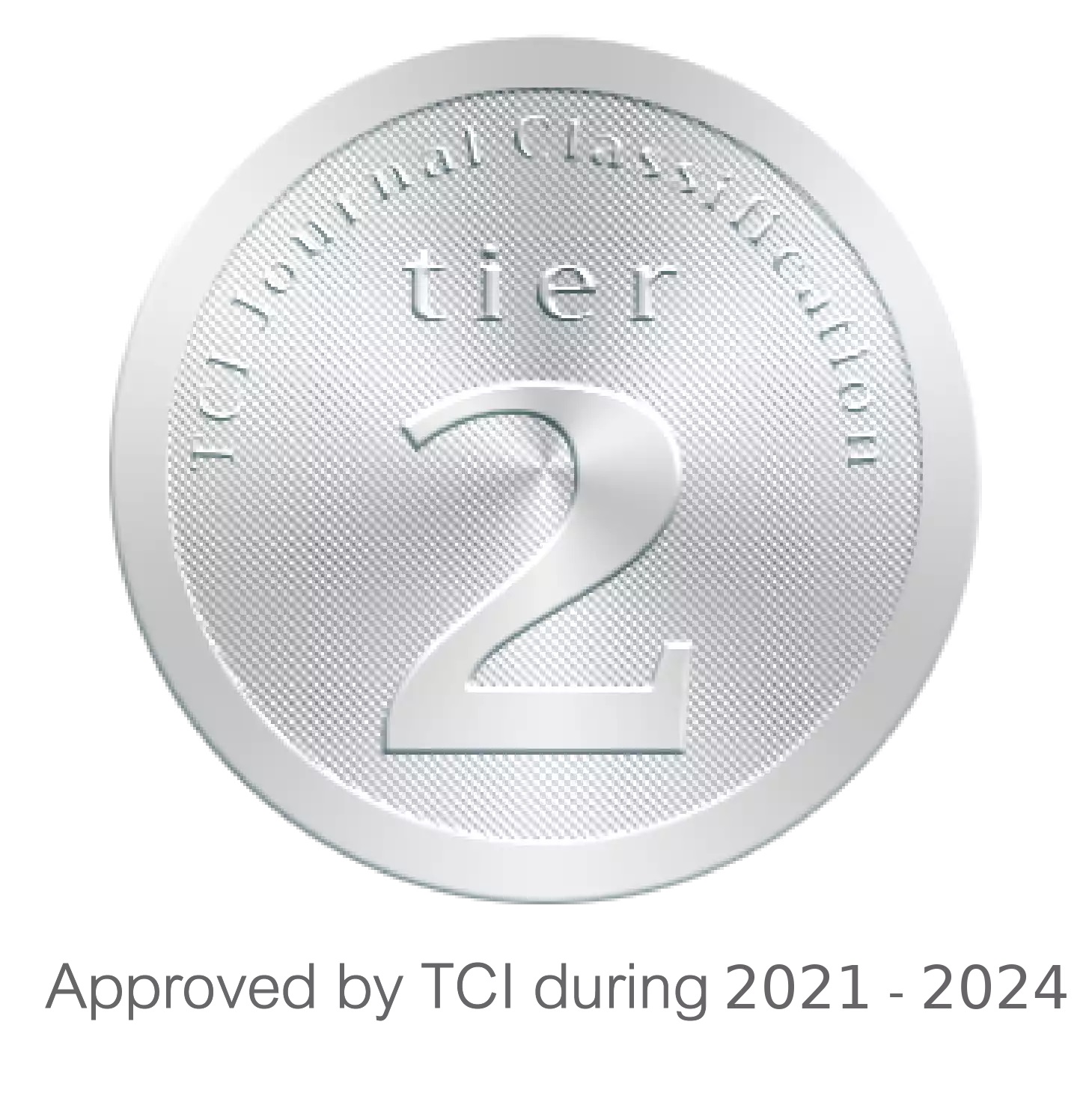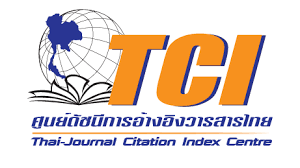RELATIONSHIPS BETWEEN PROACTIVE PUBLIC RELATIONS AND ORGANIZATIONAL PERFORMANCE OF HIGHER EDUCATION INSTITUTIONS IN THAILAND
Keywords:
proactive public relations, organizational performance, higher education institutions in ThailandAbstract
The economy, culture, and technology have all evolved considerably in recent years. They have compelled firms to adapt, develop, and build managerial and operational strategies in order to obtain a competitive edge and competitiveness in an efficient and effective manner, as well as to achieve excellent performance. Recently, organizational success, development, survival, and sustainability have been aided, supported, and advanced by these competitive advantages and competitiveness. Accordingly, the objective of this research is to investigate the relationships between proactive public relations and organizational performance of higher education institutions in Thailand. This research collects data from sixty-nine executives of public relations and organizational communication of higher education institutions in Thailand and uses the questionnaire as a research tool. Multiple regression analysis of the resulting data finds that proactive public relations, including clear public relations policy; diversified public relations activities and methods; and networks of public relations connection, coordination and dissemination) have a positive relationship and effect on organizational performance. In summary, proactive public relations have a positive relationship and effect on organizational performance. As a result, Thai higher education institutions should prioritize proactive public relations and implement it in their organizations in order to provide a tool for organizational operations that efficiently and effectively provides operational advantage and influences excellent organizational performance. Moreover, proactive public relations can help achieve operational goals in the short-term and sustainable long-term aspects.
Downloads
References
กระทรวงการอุดมศึกษา วิทยาศาสตร์ วิจัยและนวัตกรรม. (2563). ข้อมูลประวัติของสถาบันอุดมศึกษา. สืบค้นเมื่อ 10 ธันวาคม 2564, จาก https://data.go.th/dataset/univ_stf_12_02.
จินตวีร์ เกษมศุข. (2554). การสื่อสารกับการเปลี่ยนแปลงของสังคม. กรุงเทพ: สํานักพิมพ์จุฬาลงกรณ์มหาวิทยาลัย.
จิระวัฒน์ อนุวิชชานนท์ และ ศิริวรรณ เสรีรัตน์. (2555). การบริหารการโฆษณาและการสื่อสารการตลาดแบบุรณาการ. นนทบุรี: ธรรมสาร.
ชัยนันท์ นันทพันธ์. (2549). กลยุทธ์การประชาสัมพันธ์ยุคใหม่: รวมบทความยอดฮิตสะกิดใจคนทำงานประชาสัมพันธ์. กรุงเทพ: โอเดียนสโตร์.
นภดล ร่มโพธิ์. (2557). การวัดผลการปฏิบัติงานองค์กร. กรุงเทพ: สำนักพิมพ์มหาวิทยาลัยธรรมศาสตร์.
บุณยนุช ธรรมสะอาด. (2564). คู่มือปฏิบัติงานประชาสัมพันธ์: หลักการประชาสัมพันธ์. สิงห์บุรีและอ่างทอง: สำนักงานเขตพื้นที่การศึกษามัธยมศึกษาเขต 5, สำนักงานคณะกรรมการการศึกษาขั้นพื้นฐาน, กระทรวงศึกษาธิการ.
ประทุม กฤษ์กลาง. (2549). การวิจัยเพื่อการประชาสัมพันธ์. กรุงเทพ: มหาวิทยาลัยกรุงเทพ.
พรทิพย์ พิมลสินธุ์. (2551). การวิจัยเพื่อการประชาสัมพันธ์ (พิมพ์ครั้งที่ 6). กรุงเทพ: โฟร์พริ้นติ้ง.
รุ่งนภา พิตรปรีชา. (2556). ตัวชี้วัดชื่อเสียงของสถาบันอุดมศึกษาในประเทศไทย. วารสารวิจัยสังคม, 36(2), 215-251.
ศิริวรรณ จุลทับ และ จินตนา ตันสุวรรณนนท์. (2558). กลยุทธ์การประชาสัมพันธ์เชิงรุกของสถาบันอุดมศึกษาเขตภูมิศาสตร์ภาคใต้. วารสารราชภัฏสุราษฎร์ธานี, 2(2), 175-194.
สิทธิ์ ธีรสรณ์. (2552). การสื่อสารทางการตลาด. กรุงเทพ: สำนักพิมพ์แห่งจุฬาลงกรณ์มหาวิทยาลัย.
สุภาวดี พรหมมา. (2549). หลักการโฆษณาและการประชาสัมพันธ์. นครศรีธรรมราช: คณะวิทยาการจัดการ มหาวิทยาลัยราชภัฏนครศรีธรรมราช.
สมบัติ ท้ายเรือคำ. (2553). สถิติขั้นสูงสำหรับการวิจัยทางการศึกษา. มหาสารคาม: สำนักพิมพ์ มหาวิทยาลัยมหาสารคาม.
สมบูรณ์ สารพัด. (2562). หลักการและทฤษฎีการวัดผลการดำเนินงานขององค์กรโดยใช้ Balanced Scorecard และการนำไปประยุกต์ใช้, สยามวิชาการ, 20(1), 35-48.
สุไร พงษ์ทองเจริญ. (2551). Oxford Wordpower Dictionary for Thai Learners ฉบับอังกฤษ-ไทย (พิมพ์ครั้งที่ 2). กรุงเทพ: หน้าต่างสู่โลกกว้าง.
อภิชัจ พุกสวัสดิ์. (2556). การประชาสัมพันธ์เพื่อการสร้างภาพลักษณ์. กรุงเทพ: สำนักพิมพ์จุฬาลงกรณ์มหาวิทยาลัย.
Aaker, D. A., Kumar, V. & Day, G. S. (2001). Marketing Research. New York: John Wiley and Sons.
Hair, J. F., Black, W. C., Babin, B. J., & Anderson, R. E. (2010). Multivariate Data Analysis: A Global Perspective (7th ed.). New Jersey: Person Prentice Hall.
Kaplan, R. S. & Norton, D. P. (1996). Strategic learning: The balanced scorecard. Strategy and Leadership, 24, 18-24.
Keith, T. Z. (2019). Multiple Regression and Beyond: An Introduction to Multiple Regression and Structural Equation Modeling (3rd ed.). Oxfordshire: Routledge.









